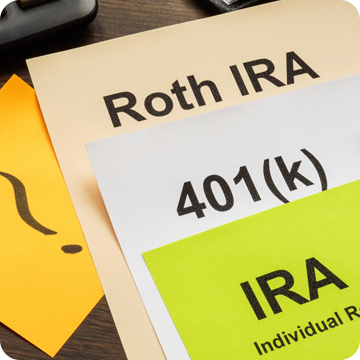
The Impact of the 401(h) Account on Retirement Planning: A Key to Managing Medical Expenses
Building a nest egg for retirement is a common part of financial planning. Healthcare budgets are often forgotten, even though saving for retirement is very important. Seniors need to plan for rising medical costs as part of a full retirement strategy. These costs could make their finances less stable. The 401(h) account lowers the cost of health care by lowering taxes and giving you a steady income for medical needs after you leave.
What is the 401(h) account?
Employers in defined benefit pension plans can make tax-deductible contributions to 401(h) accounts for post-retirement medical expenses. Section 401(h) of the Internal Revenue Code was created to cover retirees and their families’ medical, hospital, and other qualified healthcare expenses.
A 401(h) account, as opposed to IRAs and 401(k)s, is designed to pay retirees’ most significant healthcare costs. 401(h) contributions grow tax-free, and retirees can withdraw funds tax-free for qualifying medical expenses.
Why should retirees manage healthcare costs?
Healthcare costs can quickly drain retirement funds, which are commonly used to replace pre-retirement income. A healthy 65-year-old couple may spend over $400,000 on healthcare, according to polls. Insurance premiums, out-of-pocket medical expenditures, long-term care, and other unforeseen medical expenses are examples.
Employers and retirees can construct a medical fund in the 401(h) account to address this growing challenge. Not having unanticipated healthcare expenditures deplete retirement accounts protects financial well-being.
401(h) Tax Benefits:
Tax advantages are a major benefit of 401(h) accounts:
Employers’ 401(h) contributions are tax-deductible, lowering taxable income. This feature is important for small business owners and high-income earners seeking tax reductions while saving for retirement.
Tax-Free Growth: Like traditional retirement plans, 401(h) money grows tax-deferred, meaning interest, dividends, and capital gains are tax-free.
Tax-Free Medical Bill Withdrawals: Funds can be used to pay approved post-retirement medical costs, boosting financial benefits.
The 401(h) account’s tax-deductible contributions, tax-deferred growth, and tax-free medical payments make it an effective retiree healthcare bill manager.
How 401(h)s Aid Retirement Planning:
401(h) accounts are usually supplements to defined benefit plans or other qualifying retirement plans. In the company’s retirement plan, the employer creates a medical cost account.
Important characteristics of how the account fits into retirement planning:
Businesses can contribute up to $632,000 per employee to a 401(h) under IRS rules. This fund can help retirees pay medical expenditures.
Flexibility: A 401(h) account can pay hospital stays, prescriptions, insurance fees, and long-term care. This flexibility ensures retirees may cover healthcare bills without using their retirement assets.
Employer-Provided Benefits: Businesses design and fund the 401(h) account, so employees have a well-structured plan that incorporates retirement income and healthcare, one of the most unpredictable retirement expenses.
Other Medical Accounts vs. 401(h):
HSAs and flexible spending accounts are often compared to 401(h)s. Significant variances exist:
Only those with high-deductible health insurance can use HSAs to save for medical expenses before taxes. HSAs have lower yearly contribution restrictions than 401(k)s and can be used at any time.
FSAs provide tax-free medical savings, but they are limited and must be used within the plan year, making them less useful for long-term planning.
Unlike these options, a 401(h) account plans retirement medical expenses. Its larger contribution limits and tax-free withdrawals make it a superior choice for retirees seeking healthcare cost protection.
The benefits of 401(h)s in retirement plans are enormous:
Employers can attract and retain talent using 401(h) plans. This vital benefit covers income and medical expenditures, ensuring retirement security for employees.
Small business owners with defined benefit plans can also use 401(h)s for retirement and tax planning. They can save on taxes and healthcare.
The account gives retirees and staff peace of mind. Retirement planning can be tough due to medical bills, but a specialized, tax-advantaged account helps seniors manage them without compromising their retirement income.
Conclusion:
A 401(h) account might be crucial to retirement planning, given the high and unknown healthcare costs. 401(h) accounts offer retirees tax-efficient medical bill savings and peace of mind when managing post-retirement healthcare needs. Businesses and individuals benefit from this account because it aligns healthcare savings to retirement goals.
Employers and small company owners who want to improve their retirement programs should consider a 401(h). This account maximizes tax savings and healthcare planning while providing financial stability for employees and business owners.
